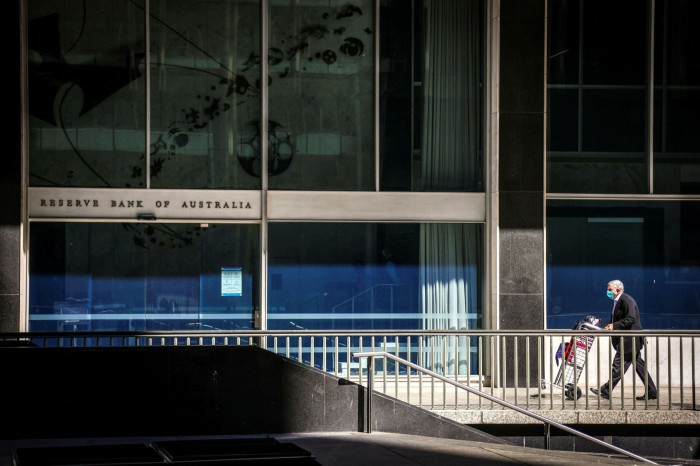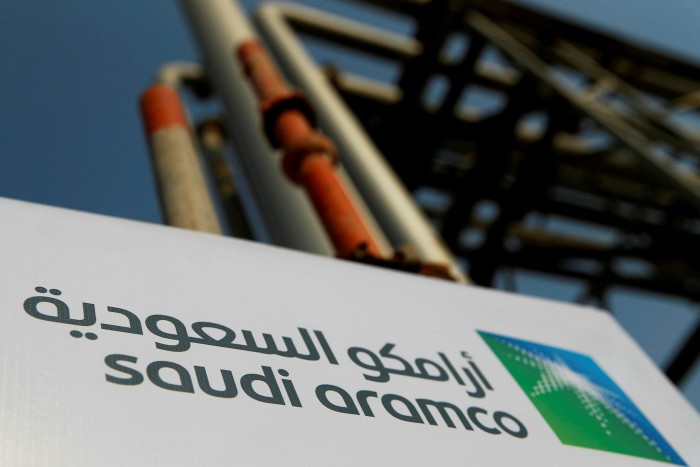[ad_1]
Hong Kong researchers develop a Covid-killing stainless steel
Researchers at the University of Hong Kong said on Tuesday they have developed a stainless steel that kills the Sars-Cov-2 virus that causes Covid-19.
A project team at the university’s engineering faculty said it had “made significant breakthroughs” in the production of lift buttons, doorknobs and handrails for further tests and trials.
The researchers, led by Huang Mingxin of the mechanical engineering department and Leo Poon of the university’s Centre for Immunity and Infection, said the stainless steel inactivates 99.75 per cent of the virus within three hours.
The surface also has long-term anti-pathogen properties against the H1N1 influenza A virus subtype and the common bacteria Escherichia coli, they said.
Antiviral stainless steel can be produced by existing powder metallurgy methods, according to the researchers’ findings, which were first published in Chemical Engineering Journal.
Australia’s reserve bank sounds upbeat on economy but not on inflation

The Reserve Bank of Australia on Tuesday left its key monetary policy settings unchanged and sounded upbeat on the prospects for the labour market and the economy.
However, the central bank did not change its outlook on inflation or message on patience with the cash rate as it noted that household consumption and the outlook for business investment have improved.
The pandemic-hit economy is expected to return to its pre-Delta variant path in the first half of 2022, the bank said, noting that the Omicron variant is a new source of uncertainty but is not expected to derail the recovery.
The RBA said leading indicators point to a strong recovery in employment but pick-up in wages growth is still expected to be only gradual. The bank also appeared unperturbed by global concerns over inflation, saying pressures are less than they are in many other countries.
The RBA left its options open on the future of its bond purchase program open, reiterating the three criteria it would use when making a decision in February 2022.
There was a shift in commentary on housing prices, with the RBA noting the rate of price gains has eased over recent months, and the value of housing loan commitments has declined from high levels.
Samsung Electronics heralds generational change with management reshuffle
Samsung Electronics on Tuesday announced a sweeping management reshuffle for the first time in four years, heralding a generational change for its main businesses.
The shake-up comes as the South Korean group’s third-generation heir Lee Jae-yong tries to make his mark, four months after being released from prison. Lee left this week for the Middle East on a business trip, soon after his high-profile trip to the US last month.
Lee promoted Han Jong-hee, the head of the visual display business, to vice-chair and co-chief executive in charge of the newly merged division of mobile and consumer electronics.
Kyung Kye-hyun, chief executive of affiliate Samsung Electro-Mechanics, will be the new chief executive of the company’s chip business, which accounts for nearly two-thirds of operating profit.
Some analysts had expected the world’s largest maker of memory chips, smartphones and electronic displays to maintain its existing management team while Lee faces legal issues linked to the merger of two Samsung units in 2014.
Travel stocks lead gains in Australia as fears ease over Omicron severity

Travel stocks led a rally in Australian equities on Tuesday after investors reacted to headlines that the new Omicron variant of coronavirus might be less severe than feared.
Shares in Qantas, Australia’s flag carrier, gained as much as 5 per cent, while travel groups Flight Centre and Corporate Travel Management both rose more than 6 per cent.
The increases, alongside strong gains for payments company Zip, helped pushed Australia’s benchmark S&P/ASX 200 up as much as 0.9 per cent.
Anthony Fauci, the top US health official, on Sunday called early signals about the severity of Omicron “encouraging”, telling CNN “we feel certain that there will be some degree and maybe a considerable degree of protection” with booster jabs.
Australia’s rally was followed by stocks in Japan, where the Topix gained as much as 0.8 per cent. In South Korea, the Kospi dipped, notching losses of up to 0.4 per cent.
Futures in mainland China edged higher and were up 1.7 per cent in Hong Kong, where markets closed 1.8 per cent lower on Monday.
What to watch in Asia today
Japan: The country announces its household spending figures for October, an important gauge of activity and confidence in the economy. It is forecast to be 2.8 per cent higher than in September, but still 3.9 per cent lower than October last year.
Australia: The Reserve Bank of Australia makes its monetary policy decision today, setting the country’s cash rate target. It will also deliver its assessment of the country’s current economic situation in its monetary policy statement. The target is forecast to remain unchanged, at 0.1 per cent, where it has been set since November 2020.
Markets: Wall Street equities rose on Monday, led higher by travel stocks, as fears that the Omicron coronavirus variant would lead to fresh lockdowns eased. The broad-based S&P 500 index rose 1.2 per cent on Monday, after closing down 0.8 per cent on Friday. The technology-focused Nasdaq Composite index closed 0.9 per cent higher on Monday. Australian stocks rose in early trading while futures in Hong Kong were up.
Travel stocks lead Wall Street higher as markets reassess Omicron risks
Wall Street equities rose on Monday, led higher by travel stocks, as concerns the Omicron coronavirus variant would lead to fresh lockdowns eased.
The broad-based S&P 500 index rose 1.2 per cent on Monday, after closing 0.8 per cent lower on Friday.
Travel-related stocks rallied with shares in Norwegian Cruise Line, United Airlines, Royal Caribbean Cruises and Carnival all rising by more than 8 per cent.
Dr Anthony Fauci, US president Joe Biden’s chief medical adviser, on Sunday called early signals about the severity of Omicron “encouraging”.
He told CNN that “we feel certain that there will be some degree and maybe a considerable degree of protection” with booster jabs. Market swings about Omicron are likely while scientists await conclusive data.
The technology-focused Nasdaq Composite index closed 0.9 per cent higher on Monday. The narrower gain continued a trend over the past fortnight, in which the Nasdaq has trailed the S&P 500.
The yield on the benchmark 10-year Treasury note rose 0.09 percentage points to 1.43 per cent as the price of the debt fell.
Read more on the day’s market moves here.
Saudi Aramco to raise $15.5bn by selling stake in natural gas pipeline business

Saudi Aramco announced a deal to raise $15.5bn by selling a minority stake in a newly formed gas pipeline venture to a consortium of investors.
The world’s largest oil producer said on Monday it would sell the stake to a group led by BlackRock and the investment management arm of the General Organization for Social Insurance, a Saudi government body.
The transaction marks Aramco’s second big pipeline deal this year as it tries to monetise assets to generate cash for the government, its main shareholder.
The announcement followed a call earlier in the day from the company’s chief executive, speaking at the World Petroleum Congress in Houston, for global leaders to continue investing in fossil fuels in the years ahead or run the risk of spiralling inflation and social unrest that would force them to jettison emissions targets.
Read more on Saudi Aramco’s warning here.
BuzzFeed shares endure volatile debut on the Nasdaq
BuzzFeed’s first hours of trading as a listed company proved volatile, with shares swinging into negative territory from an early gain of more than 50 per cent.
The media group went public on Monday through a merger with a blank cheque company, or Spac, from which most of the investors in that vehicle had pulled their money out before the listing.
BuzzFeed shares jumped as much as 53.5 per cent to an intraday high of $14.77 in the first hour of trading on Monday. By late morning, they hit $8, representing a 16.8 per cent drop from the Spac’s adjusted closing price on Friday of $9.62.
Shares were down 8.9 per cent in late-afternoon trading.
Spacs had been one of the hottest products on Wall Street earlier this year, but have more recently fallen out of favour with investors.
[ad_2]
Read More: Latest news updates: Travel stocks lead gains in Australia as fears ease over Omicron
